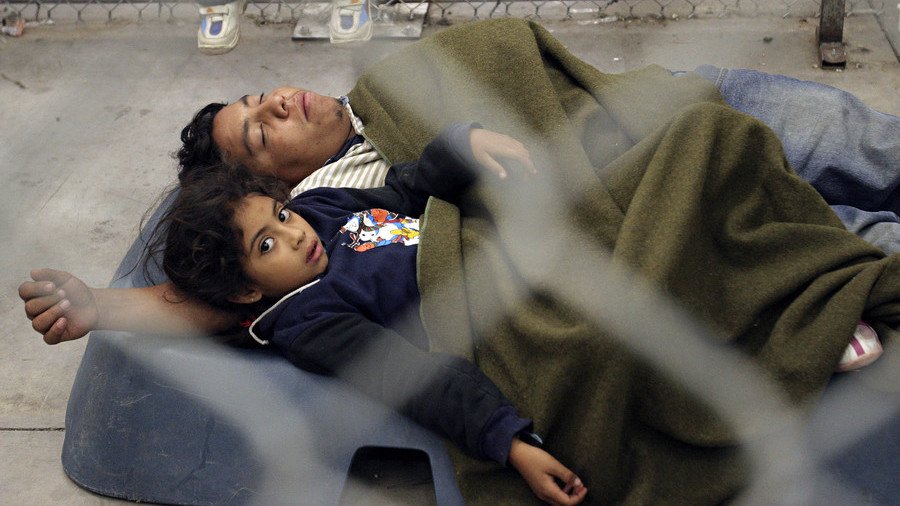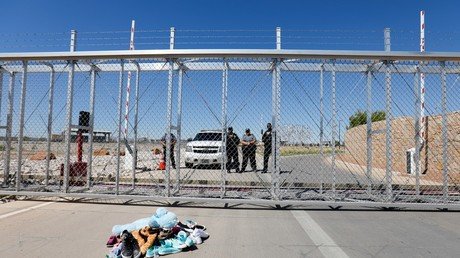Pentagon asked to accommodate ‘alien family population’ of 12,000

The Pentagon has been requested to house and take care of some 12,000 illegal immigrants at its military bases along the Mexican border, to help the White House impose its “zero-tolerance” policy.
“The Department of Defense has received a request for assistance from the Department of Homeland Security to house and care for an alien family population of up to 12,000 people. DHS requests that DoD identify any available facilities that could be used for that purpose,” the Pentagon said in a statement.
‘Come legally or not at all’: VP Pence sends message to Latin America
The request is quite urgent as the first 2,000 beds will have to be provided within 45 days. If the Pentagon does not find any available space, it is being asked to identify three potential construction sites and to erect “semi-separate, soft-sided camp facilities” that could house as many as 4,000 people each. Four US states which border Mexico – Texas, Arizona, New Mexico, or California – are considered ideal locations.
While a number of sites are being considered, Goodfellow Air Force Base near San Angelo, Texas, and Fort Bliss in El Paso, Texas will likely be chosen by Defense Secretary James Mattis, a US military official said Wednesday, according to USA Today.
No matter which facilities are offered to the illegals they must comply with the guidelines outlined in US Immigration and Customs Enforcement’s family residential standards, as well as the Flores settlement agreement that governed the detention of immigrant children since the mid-80s.
After Donald Trump announced his “zero tolerance” policy on illegal border crossing in April, more than 2,000 children were separated from their families. Facing a massive public backlash, last week Trump issued an order allowing families to stay together after being detained at the border. A district court judge in San Diego on Tuesday granted the American Civil Liberties Union (ACLU) a preliminary injunction giving the government 30 days to reunify minors with their families and 14 days if the individual is younger than five.
If you like this story, share it with a friend!















